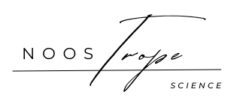What Are the Best Vitamin Brands? Avoiding Low-Quality Vitamins and Common Pitfalls
The supplement aisle can be a minefield of promises, buzzwords, and colorful labels. But dig a little deeper, and you’ll find that many low-quality vitamins rely on shortcuts like ineffective dosages, inferior ingredients, and cheap fillers to cut costs and maximize profits. If you’ve ever wondered “what brand of vitamins is best quality” or “what are the best vitamin brands”, the answers lie in understanding the difference between high-quality supplements and the low-quality options that dominate the market.
Identifying the Problems with Low-Quality Vitamins
Low Dosages: Labels That Overpromise
One of the biggest red flags in low-quality vitamins is insufficient dosages. Manufacturers often include tiny amounts of popular ingredients to list them on the label, creating an impression of value. For example:
- Ashwagandha: While clinical studies support a dose of 300–600 mg of KSM-66® for stress relief, many products use just 50 mg, delivering negligible benefits.
- Curcumin: Effective doses range from 500–2,000 mg, particularly when paired with bioavailability enhancers like Bioperine®. Many products include only trace amounts.
This tactic gives the illusion of value but falls far short of delivering real results. Consumers seeking “what is the best vitamin brand that is natural” should look for brands that disclose clinically supported dosages on their labels.
Low-Quality and Overhyped Ingredients
The market is flooded with trendy, low-efficacy ingredients that gain popularity through aggressive marketing rather than proven science. A prime example is raspberry ketones, once touted as a miracle fat burner. However, research on its effectiveness is limited, and other options like Capsimax® (Capsaicin) or Grains of Paradise (Paradoxine®) may have more supporting evidence.
Similarly, ingredients like Garcinia Cambogia and generic collagen powders have been hyped but fail to deliver the same results as high-quality alternatives such as hydrolyzed collagen peptides (Verisol®) or advanced fat-burning compounds like Teavigo® (EGCG). For consumers asking, “what are the best vitamin brands”, high-quality supplements prioritize proven ingredients over marketing gimmicks.
Fillers: Hidden Junk in Your Supplements
Many low-end supplements rely on fillers to reduce manufacturing costs, often at the expense of the consumer. These fillers not only take up valuable space but can also interfere with the effectiveness of the active ingredients. Common examples include:
- Rice Derivatives:
- Rice Flour: Frequently used as a cheap filler to bulk up capsules or powders.
- Rice Bran: Sometimes marketed as a “natural” ingredient, but its presence in large amounts dilutes the effectiveness of the formula.
- Magnesium Stearate: While widely used as a flow agent, excessive amounts may hinder nutrient absorption by forming a coating around the active ingredients.
- Titanium Dioxide: A controversial additive used to whiten supplements, with no nutritional value and potential safety concerns.
When searching for “what is the best vitamin brand that is natural”, look for supplements free of unnecessary fillers like rice flour and magnesium stearate.
Understanding Absorption and Delivery Forms
Poor Absorption: The Tablet Trap
The delivery form of a supplement matters. Low-quality brands often use tablets because they’re inexpensive to produce, but their dense structure and hard coatings can result in poor dissolution and absorption. Consumers may not fully absorb the nutrients from tablets due to their dense structure and coatings, which can vary in dissolution rates.
- Capsules: Better for absorption, especially when filled with high-quality powders.
- Softgels and Liposomal Formulations: Superior options that protect active ingredients through digestion, ensuring they reach the bloodstream effectively.
These factors are critical when determining “what brand of vitamins is best quality”, as bioavailability directly impacts effectiveness.
Better Alternatives to Popular Ingredients
When it comes to supplements, choosing the right ingredients can make all the difference. Here are some common low-quality options and their superior alternatives:
- Raspberry Ketones → Capsaicin (Capsimax®) or Grains of Paradise (Paradoxine®): Proven thermogenic agents for fat burning.
- Generic Collagen → Verisol® or Fortigel®: Clinically supported for skin and joint health.
- Garcinia Cambogia → Berberine HCL or Glucomannan: Backed by stronger evidence for weight management.
What to Look for in High-Quality Supplements
To avoid falling victim to low-quality vitamins, keep these tips in mind:
- Clinically Supported Dosages: Consider products that align with dosages studied in clinical research, while consulting a healthcare professional for individual needs.
- Branded Ingredients: Look for trademarked ingredients like Cognizin®, Teavigo®, or Magtein®, which ensure quality and efficacy.
- No Fillers: Avoid unnecessary fillers like rice flour, magnesium stearate, and titanium dioxide.
- Effective Delivery Systems: Opt for capsules, softgels, or liposomal formulations for better absorption.
- Transparent Labels: Be wary of vague proprietary blends that hide ingredient dosages.
The Bottom Line
Low-quality vitamins are a classic case of “you get what you pay for.” From inadequate dosages and generic ingredients to ineffective delivery methods and filler-packed formulations, these products rarely deliver on their promises. By choosing supplements with clinically studied dosages, high-quality ingredients, and effective delivery systems, you may better support your health goals. Whether you’re researching “what are the best vitamin brands” or “what is the best vitamin brand that is natural”, focus on transparency, quality, and science-backed formulations to make an informed decision. Always read labels carefully, and don’t be swayed by hype—choose quality over cost-cutting shortcuts.

